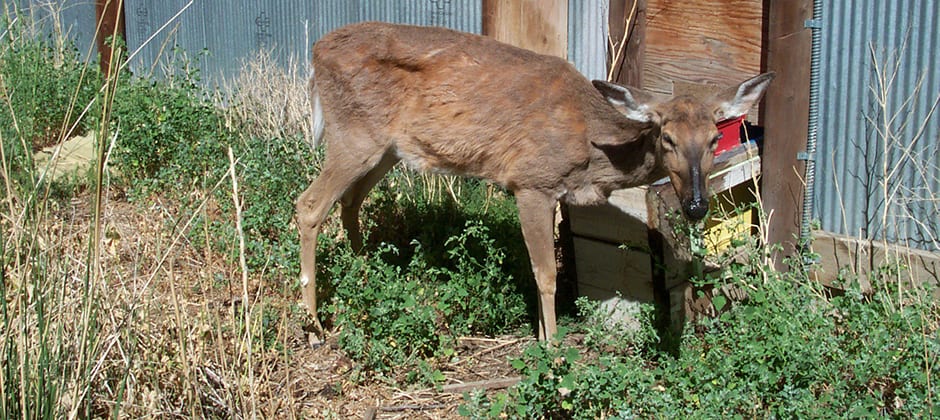Share this article
Congress examines wildlife diseases through two hearings
Lawmakers highlighted the challenges of wildlife diseases during two Congressional hearings last week. The Environment and Public Works Committee explored the impact of disease on wildlife health, human health and the economy through a hearing at which a U.S. Fish and Wildlife Service official as well as two other wildlife professionals testified.
“Successful wildlife conservation management depends on keeping wildlife populations healthy,” said Committee Chairman John Barrasso (R-Wyo.) while opening the hearing. “Disease in wildlife is often difficult to prevent, detect and control.” Sen. Barrasso framed the hearing as an opportunity to explore ways that the federal government can improve how it responds to and manages wildlife diseases.
Stephen Guertin, the U.S. Fish and Wildlife Service’s deputy director for policy spoke about the Service’s role in addressing wildlife disease, highlighting the agency’s work on white-nose syndrome, chronic wasting disease and others.
Holly Niederriter, a wildlife biologist for the Delaware Department of Natural Resources and Environmental Control, focused her testimony on diseases that affect bats, reptiles and amphibians, while Walter Cook, a clinical associate professor in veterinary pathobiology at Texas A&M University, spoke about several different wildlife diseases and the lessons he has learned studying them.
“It is important that funding be made available to address wildlife disease management,” said Cook. “I’m particularly concerned with the lack of federal funds available for research aimed at real world management dilemmas. There are federal funds supporting basic disease issues … However, there is a paucity of federal funds dedicated for research directed toward actual disease control which can also lead to increased human transmission.”
During a second hearing, by the House Interior and Environment Appropriations Subcommittee, experts specifically examined chronic wasting disease. Chairwoman Rep. Betty McCollum (D-Minn.) called for more research and expedited testing for the degenerative neurological disease affecting deer, elk and moose in 26 U.S. states and four Canadian provinces. Witnesses, including wildlife professionals from the U.S. Fish and Wildlife Service, states and tribes, called for increased funding for rapid detection tools, testing facilities and monitoring.
West Virginia’s wildlife resources section chief Paul Johansen, CWB®, who also serves as The Wildlife Society’s Northeast Section Representative to Council, testified on behalf of the Association of Fish and Wildlife Agencies at the hearing. Johansen spoke about the ways in which states are addressing the threat of CWD and the increasing expenditures that those states are facing.
“Expenditures on CWD are funds that would otherwise be spent by our agency on direct wildlife conservation activities, including habitat restoration and species management,” said Johansen. “In West Virginia, the funding to conduct surveillance, monitoring, prevention, and management for CWD comes from the very same sources that support broader wildlife conservation activities in our state. Consequently, other species and wildlife conservation activities will be adversely affected by the continued spread and increasing expenditures associated with CWD.”
The House Interior Appropriations bill for fiscal year 2020 would provide $15 million to states for addressing the spread of chronic wasting disease and $1.72 million to the Fish and Wildlife Service for enhancing CWD research and testing methods. Final appropriations for FY 2020 have not yet been determined by Congress.
Congress has considered a number of bills in recent years devoted to improving the federal response to CWD. The Chronic Wasting Disease Management Act and the Chronic Wasting Disease Transmission in Cervidae Study Act, both of which The Wildlife Society supports, would provide resources state agencies and tribes need to research and manage the disease. The latter bill, sponsored by Sen. Barrasso, would require the Animal and Plant Health Inspection Service and the U.S. Geological Survey to partner with the National Academy of Sciences in studying transmission, best management practices and areas at greatest risk for new infections.
Read TWS’ standing position on wildlife disease
Header Image: Chronic wasting disease, which affects the deer shown here, was the subject of a Congressional hearing last week. ©Terry Kreeger, Wyoming Game and Fish and Chronic Wasting Disease Alliance








